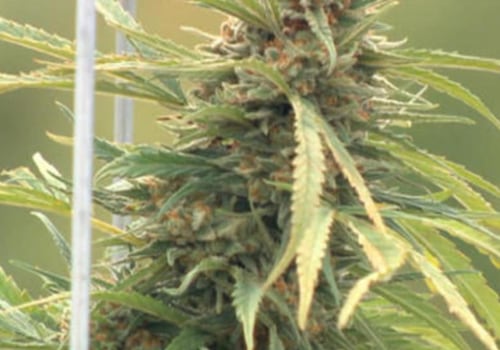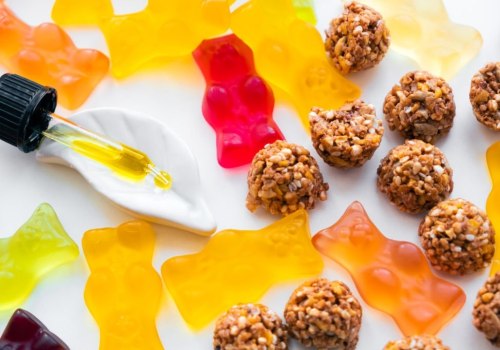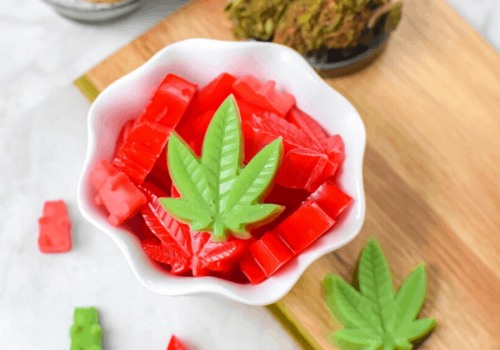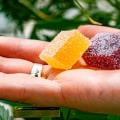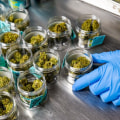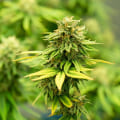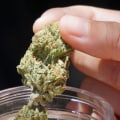Delta-8 is a tetrahydrocannabinol (THC) analog with anti-inflammatory effects. This means that it binds to the same receptors in the brain as THC, producing some of the same effects and offering others unique to delta 8. It is important for consumers to know that delta-8 products with THC have not been evaluated or approved by the FDA for safe use in any context. They can be marketed in ways that endanger public health and, especially, should be kept out of reach of children and pets.
The FDA is aware of the growing concern surrounding delta-8 products with THC that are currently sold online and in stores. These products have not been evaluated or approved by the FDA for safe use in any context. Some concerns include variability in product formulations and labeling, other cannabinoid and terpene contents, and varying concentrations of THC delta-8.In addition, some of these products may simply be labeled as “hemp products”, which may mislead consumers who associate “hemp” with “non-psychoactive products”. In addition, the FDA is concerned about the proliferation of products containing delta-8 THC and that are marketed for therapeutic or medical uses, even though they have not been approved by the FDA.
Selling unapproved products with baseless therapeutic claims is not only a violation of federal law, but it can also put consumers at risk, since these products have not been proven to be safe or effective. This misleading marketing of unproven treatments poses significant public health problems, as patients and other users can use them instead of approved therapies to treat serious and even fatal illnesses. Delta-8 THC has psychoactive and intoxicating effects, similar to delta-9 THC (i.e. delta 9).
The FDA is aware of media reports on products containing THC delta-8 that they “place”. The FDA is also concerned that products with THC delta-8 may expose consumers to much higher levels of the substance than those found naturally in raw hemp and cannabis extracts. Therefore, the historical use of cannabis cannot be relied upon to establish a level of safety for these products in humans. The FDA is actively working with federal and state partners to further address concerns related to these products and to monitor the market for complaints about products, adverse events, and other emerging cannabis-derived products that may be a cause for concern.
The FDA will warn consumers about public health and safety issues and will take action, when necessary, when products regulated by the FDA violate the law. The American Association of Poison Control Centers (AAPCC) maintains the National Poison Data System (NPDS), which contains anonymous case records of self-reported information collected from callers during exposure control and informational calls about managed poisoning by the country's poison control centers (PCC). The NPDS data do not reflect the entire universe of exposures to a particular substance, since additional exposures may not be reported to PCC; therefore, the NPDS data should not be interpreted as representing the full incidence of U, S. Exposures do not necessarily represent poisoning or overdose, and the AAPCC cannot fully verify the accuracy of each report.
The findings based on NPDS data do not necessarily reflect the views of the AAPCC.
Delta 9
THC is biphasic in nature. In low and moderate doses, it can promote relaxation, euphoria, laughing mood and tension relief. However, higher doses, especially in reactive people, can cause it to be counterproductive and cause anxiety and paranoia.Yes, Delta 8 gives you a high. While these are some of the positive effects of the cannabinoid Delta 8, there are also potential side effects. The National Cancer Institute has said that Delta 8 is neuroprotective and has less potent psychotropic properties. In addition, THC delta 8 can attract focus and energy, improving overall performance and translating into greater productivity throughout the day.
According to the National Cancer Institute, Delta 8 has “antiemetic, anxiolytic, appetite-stimulating, analgesic and neuroprotective properties”. Delta 8 often gives a beginner who has never smoked a joint or eaten edible food an idea of what that experience could make them feel like. It's best to start with a low dose (5 or 10 mg) and work your way up slowly to the point where you're comfortable with the high THC level of delta 8.Since THC delta 9 is stronger than delta 8, it has a greater chance of overstimulating the CB1 receptor. Because 9 percent of Delta is less than 0.3%, Delta 8 cannabis is supposedly legal in several U.
S. states. UU. The duration and appearance of Delta 8 THC depend not only on the method of use, but also on your tolerance levels.
Cannabis is one of my remedies for this, and delta-8 has been shown to have the same benefits that I get from smoking a joint and telling me that everything will work out. However, while delta 9 occurs naturally in high concentrations in marijuana, delta 8 is produced only in negligible quantities. The effect of delta 8 THC depends on the method of consumption, the dose and the combination of compounds contained in the product. Delta 8 THC is a double bond analog of delta 9, meaning that its double bond is found in the eighth carbon chain instead of the ninth carbon chain.

